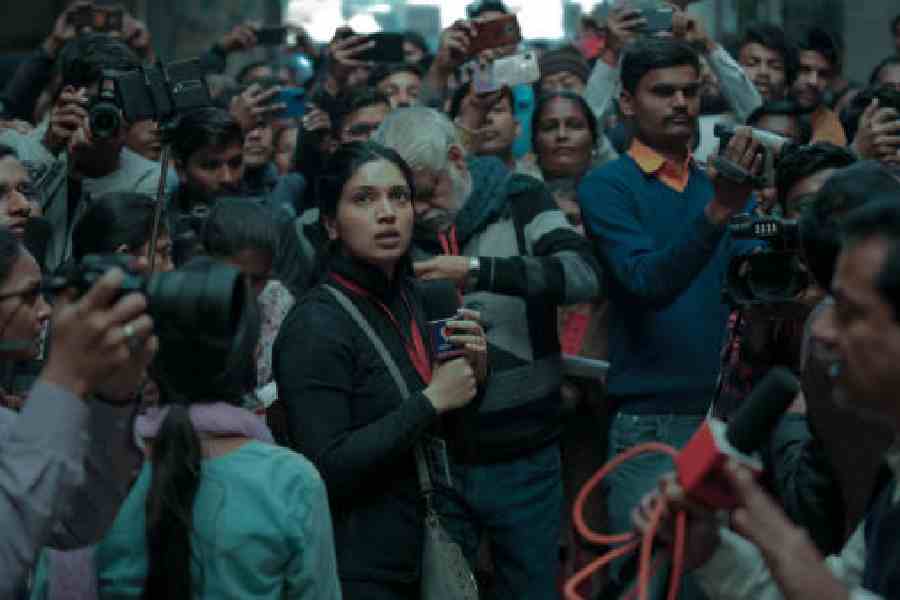Doosro ke dard mein dukhi hona kya bhul chuke hain aap?’
There is nothing in Bhakshak that one hasn’t seen before on screens big and small. But the film hits hard, time and again, with various iterations of the same pertinent question. Have we become so hardened as a society that we don’t feel for others anymore? Have we lost all empathy? Will we go beyond cursorily glancing at horrific headlines only when something drastic happens to a dear one or, closer home, to ourselves?
‘Work of fiction inspired by certain real events’, is the disclaimer at the beginning of Bhakshak. The scenario is familiar — small-town India, in this case Patna. The players are ones we have seen before, operating within the grimy nexus of politician-police-plug ugly. The circumstances and the central conflict aren’t novel, with the abuse of marginalised girls being swept under the carpet and a lone woman crusader taking on the powers that be in the quest for justice.
What sets Bhakshak — streaming on Netflix — apart is the film’s constant call to consciousness. Sometimes subtle, sometimes a scream, even as its seemingly ordinary protagonist sticks her neck out to help others at the cost of her own.
On the surface, Vaishali Singh appears like yet another Bhumi Pednekar character living in a small town, the kind that we have come to see the actress in since her debut film Dum Laga Ke Haisha. But Vaishali — who quit a stable, better-paying job at a TRP-hungry news channel — to set up her local network (operating out of a one-room tenement that doubles as a kitchen) — is driven by her conscience, always believing that: “Koshish karna kuch na karne se behtar hain.”
With her life, both at home and at work, driven by this single-minded aphorism, Vaishali swings into action, albeit a little slowly at first, when her informant hands her a file containing information that the inmates of an orphanage for girls in neighbouring Munnawarpur are systemically abused but the state government and its affiliated institutions, even after being privy to the information, have chosen to ignore it. Reason? The balika griha is run by the influential ‘social worker’ Bansi Sahu (Aditya Srivastava) and no one dare touch him, especially with the elections being around the corner.
Even in the face of extreme threat to her life and naysayers breathing down her neck, many within her own family, Vaishali leaves no stone unturned to unearth the truth, her attempt to blow off the lid letting loose a can of worms that will make your skin crawl. Debutant director Pulkit pulls no punches in telling this hard-hitting story, with Bhakshak — aptly meaning ‘predator’ — commencing with the horrific scene of a young orphan being brutally raped, murdered in cold blood and cremated in the dead of the night, with no one being the wiser. The first few frames are enough to set the tenor of the film which unfolds over 135 minutes as a slow but sledgehammer-like sucker punch.
Bhakshak rests solely on Bhumi’s shoulders and the actor — with this film almost functioning as a companion piece to her 2023 films Bheed and Afwaah — excels in a part that seems simple on the surface but is layered enough for her to sink her teeth into with relish. Lending her able support is the always dependable Sanjay Mishra, with Saie Tamhankar making an impression during her brief time on screen.
While its primary focus may be on the larger predators out there, Bhakshak scores in showing how a woman needs to win everyday battles — from smilingly handling a colleague who claims that Vaishali gets away with a lot of things because she is a female reporter, to showing a mirror of shame to her husband for reprimanding her for not coming home on time and cooking dinner — to score her bigger triumphs.
Priyanka Roy
I liked/ didn’t like Bhakshak because... Tell t2@abp.in











